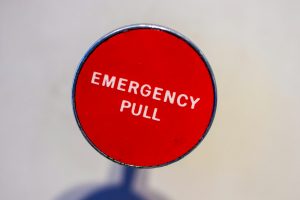When emergencies arise, our ability to respond effectively can make all the difference in ensuring safety and minimizing harm. While the thought of preparing for unforeseen events might feel daunting, breaking it down into manageable steps can make the process more approachable. Let’s dive deeper into how you can be truly prepared for whatever life throws your way. Assessing your readiness starts with the essentials, but as you’ll see, it encompasses much more than just having a few supplies on hand. Let’s explore the crucial components of emergency preparedness and how you can ensure you’re ready for any situation.
Evaluate Your Emergency Supplies
A well-stocked emergency kit is your first line of defense when disaster strikes. Here’s a checklist to ensure you’re covered:
- Non-perishable Food: Aim for a variety of items that don’t require refrigeration, cooking, or water. Think canned goods, protein bars, and dried fruits. Plan for at least a three-day supply. Consider including items like canned soups, nuts, and instant oatmeal packets for variety.
- Water: Store at least one gallon per person, per day, for a minimum of three days. Consider water purification tablets or a portable water filter as a backup, especially if you live near a natural water source.
- First Aid Kit: Beyond the basics, include items like antiseptic wipes, a thermometer, and splints. Customize your kit to address any specific health needs of family members. Include a basic first aid manual to guide you through emergencies.
- Flashlight and Batteries: Opt for LED flashlights for longer battery life, and keep a hand-crank flashlight as a backup. Rechargeable batteries and a solar-powered charger can be invaluable during prolonged outages.
- Medications: Keep a week’s supply of any necessary prescriptions, and consider over-the-counter meds for pain relief and allergies. Don’t forget to include any medical equipment you rely on, such as inhalers or insulin.
Pro Tip: Set a reminder to check your supplies every six months. Rotate food and medicine to ensure nothing expires, and test your flashlight and radio to confirm they’re in working order. Consider using a spreadsheet or a dedicated app to track expiration dates and inventory levels.
Develop an Emergency Plan
A robust emergency plan can be the bedrock of your family’s safety. Here’s how to create one that covers all bases:
1. Evacuation Routes
Identify multiple escape routes from your home and neighborhood. Familiarize yourself with local shelters and their locations. Practice these routes with your family to ensure everyone knows how to reach safety quickly. Consider scenarios like blocked roads or damaged infrastructure, and plan alternative routes accordingly.
2. Communication Strategy
Establish a communication plan that includes:
- A family meeting point outside the home.
- An out-of-town contact person, as local networks might be overloaded.
- A method for updating family members on your status, such as text messages or social media. Consider using a group chat app that allows for location sharing in real-time.
3. Special Considerations
Factor in the needs of all household members. For instance, ensure you have extra supplies for pets, such as food and a leash. For elderly family members, consider mobility aids or medical equipment. If you have children, include comfort items like toys or blankets to help alleviate stress during emergencies.
4. Practice Makes Perfect
Regular drills can make emergency responses more instinctive. Conduct drills every few months, varying the scenarios to cover different emergencies, such as fire or severe weather. Involve all family members in the planning and execution of these drills to ensure everyone is on the same page.
Stay Informed
Knowledge is power, especially when it comes to emergencies. Here are ways to stay ahead:
- Local Alerts: Sign up for community alerts through platforms like Nixle or CodeRED. These services can provide real-time updates about local emergencies.
- Weather Apps: Use reliable weather apps that offer push notifications for severe weather alerts. Apps like The Weather Channel or AccuWeather can provide detailed forecasts and radar maps.
- Community Resources: Familiarize yourself with local emergency services, shelters, and volunteer groups. Knowing who to turn to can save valuable time during a crisis. Attend local community meetings or workshops to stay informed about emergency plans in your area.
Enhance Your Skills
Being equipped with the right skills can significantly alter the outcome of an emergency. Here’s how to sharpen your abilities:
1. First Aid and CPR Training
Join a local Red Cross class or a similar organization to learn life-saving techniques. Whether it’s administering CPR or stopping a bleed, these skills can be invaluable. Consider refreshing your training every couple of years to keep skills sharp.
2. Fire Safety
Learn how to use a fire extinguisher and the correct method to evacuate a smoke-filled building. Remember the PASS technique: Pull, Aim, Squeeze, and Sweep. Conduct regular inspections of your smoke detectors and replace batteries annually.
3. Self-defense
Consider a basic self-defense class. While not directly related to natural disasters, personal safety is an important aspect of overall preparedness. Classes often cover situational awareness, which can be beneficial in any emergency.
Consider Your Mental Preparedness
Staying calm in the face of chaos is easier said than done, but mental readiness is crucial:
1. Mindfulness Techniques
Practices like deep breathing, meditation, and yoga can help cultivate a calm mindset. Regular practice can improve your ability to remain composed during high-stress situations. Apps like Headspace or Calm offer guided sessions that can be easily incorporated into your daily routine.
2. Mental Resilience
Develop a positive mindset focused on problem-solving rather than panicking. Engage in activities that boost confidence and stress management, such as journaling or physical exercise. Resilience training programs are available online, offering structured approaches to building mental toughness.
3. Family Support
A strong support network is invaluable. Encourage open conversations about concerns and fears with family members, creating a supportive environment where everyone feels heard. Regular family meetings can provide an opportunity to discuss and update emergency plans, fostering a sense of teamwork.
Financial Preparedness
An often-overlooked aspect of emergency readiness is financial planning. Here’s how to safeguard your finances:
- Emergency Fund: Aim for three to six months’ worth of expenses in an easily accessible savings account. Consider setting up automatic transfers to build this fund gradually.
- Important Documents: Keep copies of essential documents, such as IDs, insurance policies, and bank account details, in a waterproof, fireproof safe. Consider digital backups stored securely online.
- Insurance Check: Regularly review your insurance policies to ensure they’re up to date and provide adequate coverage for both your home and belongings. Consult with an insurance advisor to understand your coverage fully and make necessary adjustments.
Home Safety and Security
Your home should be your sanctuary, even in emergencies. Here are ways to bolster its safety:
1. Structural Integrity
Conduct regular inspections of your home’s structure. Check for vulnerabilities like loose shingles or cracks in the foundation that could be exacerbated by severe weather. Consider hiring a professional to assess your home for earthquake or flood resilience.
2. Utility Safety
Know how to turn off your home’s gas, water, and electricity in case of an emergency. Ensure all family members know the locations and mechanisms of these shutoffs. Label shutoff valves clearly and provide instructions nearby for quick reference.
3. Security Measures
Consider installing a security system with cameras and alarms. Not only can this deter crime, but it can also alert you to other emergency situations, such as fires or carbon monoxide leaks. Smart home technology can provide remote monitoring and control for added convenience and safety.
Community Involvement
Being part of a community can enhance your preparedness efforts:
- Neighborhood Groups: Join or form a community emergency response team (CERT). These groups can provide training and resources, and facilitate a coordinated community response during emergencies.
- Volunteer Opportunities: Get involved with local emergency preparedness drills or initiatives. Volunteering can provide valuable experience and insights into effective emergency management. Participate in neighborhood watch programs to foster community awareness and support.
Technology and Tools
Use technology to your advantage:
- Emergency Apps: Download apps like FEMA or the Red Cross Emergency app, which provide tips, alerts, and resources at your fingertips.
- Backup Power: Invest in a portable generator or solar chargers for critical devices like phones and medical equipment. Ensure you know how to safely operate and maintain these devices.
Continuous Improvement
Preparedness is an ongoing process. Here’s how to keep improving:
- Feedback and Review: After any drill or real emergency, review what went well and what could be improved. Adjust your plans accordingly. Encourage feedback from all family members to gain diverse perspectives.
- Stay Educated: Regularly update yourself on new preparedness strategies and technologies. Attend workshops or webinars to stay informed. Consider subscribing to relevant publications or newsletters for the latest insights.
By taking these steps, you’re not just preparing for emergencies; you’re investing in peace of mind. Remember, while we can’t predict every turn life might take, we can control how prepared we are to face it. Stay safe and proactive, knowing that your readiness today can make a world of difference tomorrow.



